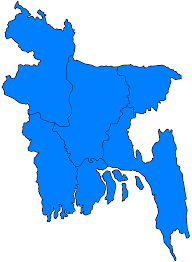HOW IMPORT GLOBALS BANGLADESH IMPORT DATA IS BENEFICAL TO GROW BUSINESS GLOBALLY
Import Globals Bangladesh Import Data is an essential tool for businesses and individuals who are involved in the import industry in Bangladesh. This data is collected from custom shipping bill documents, making it highly reliable and authentic. The coverage of this data is complete, providing comprehensive information on all imports that enter the country.The coverage provided by Import Globals includes all types of imports, including both sea freight and air freight shipments. This broad coverage ensures that no import goes unnoticed, giving users a holistic view of the import market in Bangladesh.
Import Globals Bangladesh Customs Data is its inclusion of consignee and shipper company names, addresses, HS code, product description, quantity, value and many more. This level of detail allows users to track shipments to specific companies and understand their importing patterns. It also helps identify potential business partners or competitors in the market.
The authenticity of this data cannot be overstated as it is sourced directly from official customs documents. This means that every entry has been verified and validated by customs officials, ensuring accuracy and reliability. As a result, businesses can make informed decisions based on real-time data rather than relying on estimations or outdated information.
One of the key components in understanding the import market in Bangladesh is having access to accurate and comprehensive data. This is where IMPORT GLOBALS comes in – providing the most up-to-date and detailed information on imports into Bangladesh through their IMPORT GLOBALS BANGLADESH IMPORT CUSTOMS DATA.
This data includes a wealth of information on importers and exporters, providing insights into the companies involved in importing goods into Bangladesh. With this data, businesses can identify potential partners or competitors, track market trends, and make informed decisions about their own import strategies.
The Bangladesh import custom data also includes valuable details such as the value of products imported, helping businesses understand the size and scope of specific markets within Bangladesh. This information can be broken down by month, allowing for analysis of seasonal trends or spikes in demand for certain products.
Another important aspect of this data is the Harmonized System (HS) code provided for each imported product. The HS code is an internationally recognized system used to classify traded goods – making it easier for businesses to identify specific items being imported. With over 5000 different HS codes included in this database, businesses can easily find relevant information on specific products they are interested in.
In addition to importer and product details, IMPORT GLOBALS BANGLADESH IMPORT TRADE DATA also provides destination and origin countries for each import entry. This allows businesses to not only understand which countries are exporting goods to Bangladesh but also which countries are popular destinations for Bangladeshi imports. This information can be especially useful when looking at trade relationships between different countries.
Having access to such detailed Import Globalscustom data enables companies to make more informed decisions about their supply chain management. By understanding who is importing what from where and how much it costs, businesses can optimize their sourcing strategies, negotiate better deals with suppliers, and ultimately increase their profitability.
by using Import Globals Bangladesh import data, businesses can directly connect with potential clients in foreign markets. This data provides detailed information on the import activities of companies in Bangladesh, including the products they are importing and from which countries. This valuable information allows businesses to identify potential clients who may be interested in their products or services.
Not only does this save businesses a significant amount of time that would otherwise be spent on market research and lead generation, but it also helps them target their efforts towards specific companies that are most likely to have a need for their offerings. This targeted approach can significantly increase the chances of success when reaching out to potential clients in foreign markets.
By using this Import Globals Bangladesh Data, businesses can also gain insights into the latest market trends in Bangladesh. They can understand what products are currently in demand and adjust their offerings accordingly. Additionally, they can analyze the competition and understand how other companies are positioning themselves in the market.
The benefits of using Import Globals Bangladesh import data do not just apply to large corporations but also extend to small and medium-sized enterprises (SMEs). With limited resources at hand, SMEs often struggle to explore new markets due to high costs involved in market research. However, with access to accurate import data from Bangladesh through Import Globals platform - these smaller businesses now have an opportunity to expand globally without breaking their budget.
By utilizing Import Globals Bangladesh import data, businesses can save a lot of search time while expanding their reach beyond borders. They no longer have to spend hours researching potential clients or trying out different marketing strategies blindly; instead - they get direct access to reliable information that guides them towards achieving success in foreign markets. With the help of this data, businesses can tap into new opportunities and establish themselves as global players in their respective industries.

